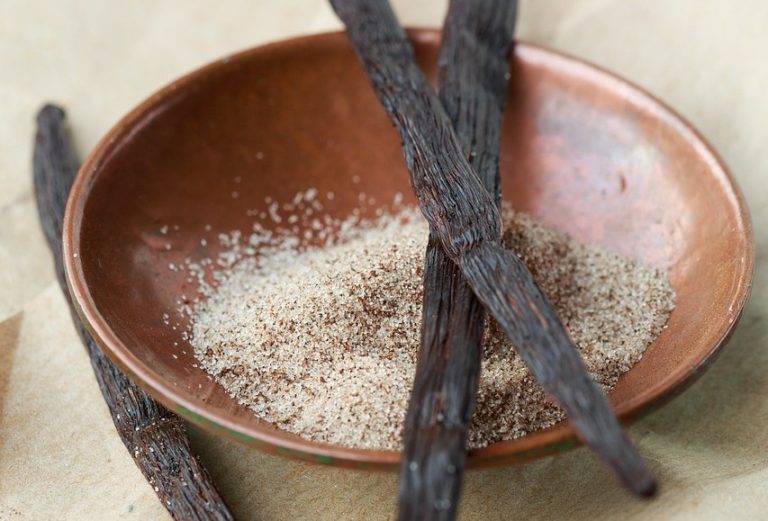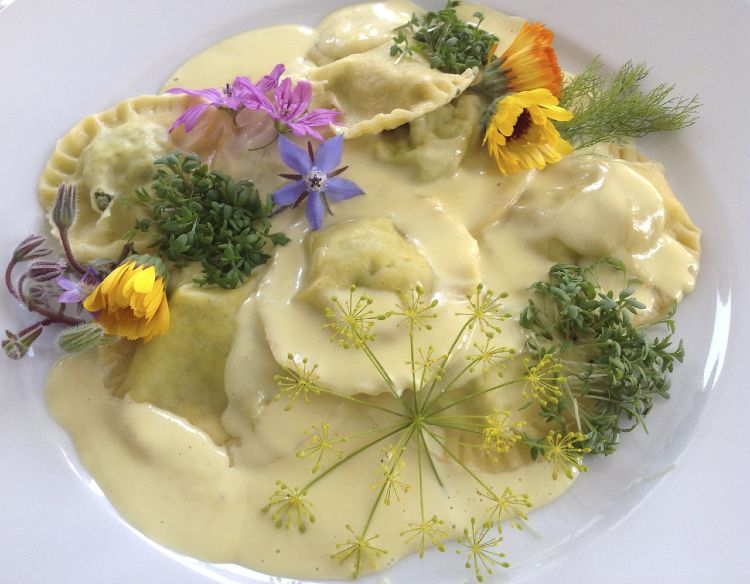Canton Tea Company
Jennifer Wood is on a mission. Her company, Canton Tea Co, imports fine, whole leaf Chinese teas into the UK, and Jennifer wants to significantly improve the quality of the daily cuppas that keep millions of Britons going every day. “The tea bag industry is a horrific, mass produced, low paid operation,” she states with both conviction and disdain. “Think of how much you’re paying for your tea bags, then imagine how much the picker is getting paid.”
We’re sitting in the rain-pelted conservatory cafe at Petersham Nurseries, in Richmond. Jennifer supplies the cafe with its tea and runs regular tea tasting workshops there. At Teaviews, an influential tea website, Canton Tea Co is ranked as the second best tea company in the world. As we sip her beautifully delicate Silver Needle tea, Jennifer continues her enthusiastic critique of the humble tea bag.
“The tea itself is low grade,” says Jennifer. “It doesn’t rely on two seasons, as does Chinese tea. Lower grade tea from India flushes all year round so it doesn’t have the same sort of flavour, which is why it’s fully oxidised and made black. It’s completely crumpled and crushed and then chopped to hell, mashed to pieces and stuffed as dust into tea bags. This is the stuff that used to be dug back into the soil and used as fertiliser.
“You also have the environmental impact of producing all those tea bags,” she continues. “They’re just not necessary. As soon as you have a teapot that separates the tea from the leaves, there’s no need to have a tea bag. All of the chemicals that go into producing them, and the waste involved, are absurd. If people didn’t have tea bags and had to drink what was inside them, they wouldn’t stand for it for a second. The only reason they drink that stuff is because it’s quick and easy.”
Jennifer is softly spoken but her voice brims with passion when she talks about tea; it’s difficult to resist being captivated by her arguments for drinking a better quality product. So how did she come to start Canton Tea Co, and thus her challenge to bring better tea to the people? “I first got into tea about 20 years ago,” she recalls. “Barney, my partner, travelled a lot to the Far East and brought back an extraordinary green tea, which I loved. I was a writer for The Body Shop and had no intention of starting my own business.
“Then I went freelance and was involved in the branding of various companies, and it struck me that most of them were about the brand and very little about the fundamental quality of the product. If it’s all about the product then the rest will follow. Having worked with Anita Roddick (human rights activist, environmental campaigner and founder of The Body Shop) for ten years, the idea of the story behind the product rubbed off on me. When I was at The Body Shop, I was writing about women’s cooperatives in Africa. The more copywriting I did with design groups, the more “empty” the product became. It seemed like the best way to start a business was to start with the very best product.”
Jennifer started the company in 2007. Canton Tea Co buys all its teas directly from the growers, so there are no wholesalers involved. As such, Jennifer required the expertise of a buyer who knew everything there is to know about buying tea in China. That person was Sebastien Leseine. “Sebastien has got a fantastic reputation in the tea world”, explains Jennifer. “He didn’t want to be associated with us until we’d proved that we weren’t going to screw his reputation by getting inferior tea. He’s a shareholder in the company now. He’s our exclusive ace in the hole.
“All the very serious tea bloggers in America know about Sebastien, and they know that when they buy from Canton Tea Co, the tea is going to be what we say it is. Sebastien is a completely passionate and dedicated Frenchman in the way that only Frenchmen can be. The intrinsic flavour of every tea is so important to him.”
Over the last few years, many new artisan tea companies have appeared in the UK. I asked Jennifer what makes Canton Tea Co different to its competitors. “Sebastien goes to the artisan tea farms and buys the tea for us. That’s really our point of difference,” says Jennifer. “Absolutely key to the business is that we have this spectacular access to the really, really good tea farms. Very few companies have a buyer with the experience of Sebastien, who lives in China permanently. If there’s any inclement weather that means that the bushes aren’t flushing at the right time, he can go around the mountain to where the quality and flavour are better. People who really appreciate tea understand the difference.
“There are other tea companies, but it would be very hard for them to maintain the quality of every single tea in the way that we do. The authenticity and provenance of our teas is absolutely crucial and is what sets us apart. There are a lot of unscrupulous farmers who use chemicals to increase their yields as much as possible, so it’s crucial to know who you can trust. In China, that’s everything. They can fake any tea. You need to know exactly how they’re produced.”
As well as Sebastien, Jennifer relies on the expertise of Master Chen. “He’s an old Chinese tea master,” says Jennifer. “He’s the fifth generation tea master in his family; his family has been working in the tea trade since the mid-1800s. He still spends every Friday in the tea house with Sebastian. They taste hundreds of different teas, they talk about them and then they decide which ones they’re going to buy. Master Chen claims to be able to tell from taste alone whether it rained on the day that a tea was picked.”
As well as the quality of the tea itself, Jennifer prides herself on the relationship between Canton Tea Co and its suppliers. “With the best teas, we have no bargaining chip, because it’s all sold immediately on the domestic market,” she explains. “We’re privileged and lucky to get our hands on it. It doesn’t come cheap. Every single one of the buds is picked by hand. It shouldn’t be cheap. It’s a very skilled job and we’re not using prisoners or children. It’s not a big, industrialised farm soaked in chemicals. They’re small, mostly hill top farms run by generations of the same family, and processed in the most beautiful, quiet environments.”
I asked Jennifer why she focuses on Chinese tea. “The Chinese have been drinking tea for 4,000 years so they know what they’re doing,” she points out. “The Japanese have been drinking it for much less than that, and the Indians for only 200 years since the British set up plantations there and in Sri Lanka. All of the expertise is in China and it has the very best tea. There’s so much tea in China that we don’t need to go anywhere else. You couldn’t possibly explore every Chinese tea in a lifetime.
“The Chinese are so proud of tea, and tea is a cultural entity in China. It’s spiritual and full of myth and legend. They take time over tea, not just the processing but the drinking, too. Young people in China still spend more on tea than they do on alcohol.”
It should come as no surprise that Jennifer is something of an expert on Chinese tea. “I’m often asked the difference between a white tea and a green tea,” she says. “It’s mostly about how it’s processed after it’s picked, and the skill of the tea farmer. There is an element to do with whether it’s from the leaf or the bud. White tea is slightly oxidised. The cell walls in the tea leaves are broken down, which releases an enzyme that causes slight decomposition. The buds are unpicked before they open. They will undergo some oxidisation before they’re dried. Green tea is completely unoxidised.
“Tea is similar to wine; there is so much that you can know about the processing, growing, the terroir and how they affect the flavour. There are four to five thousand varieties of tea bush, which all originate from one Chinese species. But within that, there are thousands of varietals that give slightly different teas.”
I’ve never been much of a tea drinker, so Jennifer gives me a crash course in how to make and taste tea. “White tea should be made pretty cool, at about 80 degrees,” she points out. “That way, the leaves aren’t shocked and all the mellow flavours come through. Let it sit for two to three minutes. You don’t want to leave it over-steeping; if the water’s too hot, it can over-steep very quickly.
“The temperature of the water is a crucial point about the brewing. It needs to be well off the boil for white and green teas. It can get slightly hotter going towards the Oolongs and the blacks. When you get to the Puerh, which is a compressed tea, you can use boiling water. It should be poured equally among the teacups, rather than pouring one teacup then another, so that everyone gets the same level of infusion. My colleague, Edgar, uses the same lump of Puerh for the whole day and he has 30-50 infusions. It just gets better and better with each infusion.
“Some people, at the beginning, need a prescriptive dialogue, which is why we have to give guidelines on how much tea to use, how long to steep it, what temperature the water should be and how many times you can infuse the leaves. Frankly, you just use those as guidelines.”
I now have a basic understanding of how to brew tea, and am surprised to learn that good Chinese tea can be infused more than once. In China, the first infusion is often discarded, along with much of the caffeine. The second and third infusions are considered the best, and the lengths of the infusions determine the flavour and the feel in the mouth of each.
Jennifer now teaches me how to taste tea. Unlike wine tasters, she doesn’t spit out her tea, but she shows me how to draw air into my mouth at the same time as the tea, then allow the air to ripple over the surface of the tea as I swallow it. Such a method might sound pretentious, but I’m surprised by how much it enhances and clarifies the flavours of the tea.
I ask Jennifer about her plans for the rest of the year. She says she hopes to improve her distribution in America; Canton Tea Co products are already available in the US, and Jennifer points out that Americans are more open-minded to the prospect of fine tea when compared with people in England. This won’t be the case for long if Jennifer’s mission is successful. “This is a revolution in tea drinking,” she declares.
Follow Canton Tea Co. on Twitter: @cantontea


